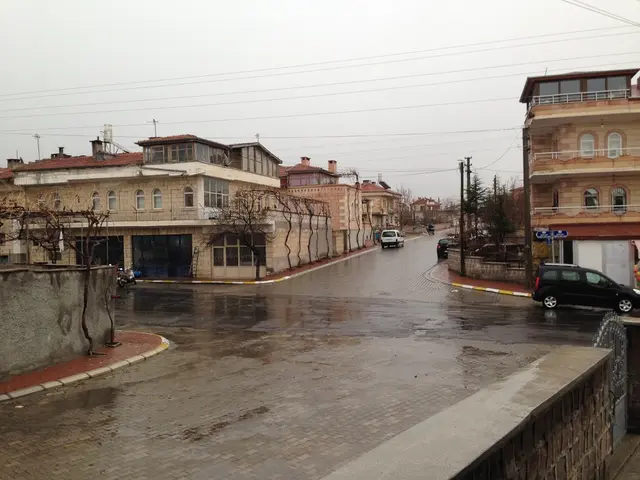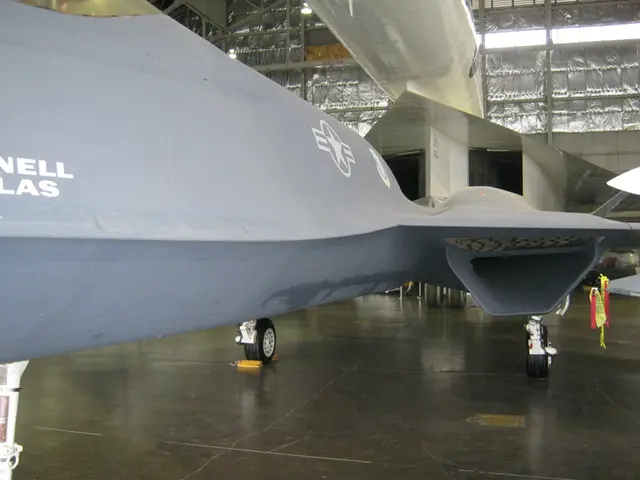Striking train engineers of New Jersey Transit disrupt transportation for approximately 350,000 daily commuters.
New Jersey Transit Strike: A Railroad Standoff
Commuters in New Jersey and New York City faced a miserable Friday as train engineers went on strike, causing ripples through the lives of an estimated 350,000 commuters. This is the first transit strike in over four decades, taking place just a month after union members vehemently rejected a labor agreement with management.
The bitter negotiations, which ended in a stalemate on Thursday, have led to this walkout. "We presented our final proposal; they rejected it and walked away with two hours left on the clock," said Tom Haas, head of the Brotherhood of Locomotive Engineers and Trainmen.
Despite the impasse, NJ Transit CEO Kris Kolluri described the situation as a mere "pause in the conversations." However, the situation remains tense, with both parties expected to pick up negotiations as soon as possible.
The strike has brought NJ Transit's rail service to a grinding halt, disrupting heavily used commuter routes linking New York City's Penn Station and communities across northern New Jersey. The walkout also impacts the Newark airport, which has been grappling with delays of its own recently.
NJ Transit had previously announced contingency plans, intending to increase bus service. However, the buses will only add "very limited" capacity to existing New York commuter bus routes adjacent to rail stations and will not commence operation until Monday. The agency has also contracted with private carriers to operate bus service from key regional park-and-ride locations during peak periods.
However, the buses are unlikely to handle anything close to the number of passengers that rail services do, with the agency predicting that they will only cater to about 20% of current rail customers. The agency, therefore, urged employees who can work from home to do so during the strike.
Even the threat of the strike has already resulted in travel disruptions elsewhere. Train and bus services for Shakira concerts at MetLife Stadium in New Jersey have been canceled as a result.
The crux of the dispute centers on wages, with the engineers seeking pay levels on par with other passenger railroads in the region. The union claims engineers earn an average salary of $113,000 per year, but they insist that an agreement could be reached if NJ Transit CEO Kris Kolluri agrees to an average yearly salary of $170,000.
NJ Transit management contends that engineers currently earn an average total income of $135,000 annually, with the highest earners surpassing $200,000. The union's statistics have reportedly caused significant attrition in its ranks, as more members leave for better-paying jobs at other railroads. As a result, the number of NJ Transit engineers has dropped from 500 to about 450.
Amidst this union-management standoff, both sides are under pressure to find a resolution quickly. The stakes are high, with the strike predicted to cost NJ Transit an estimated $4 million per day, a figure that underscores the need for a swift resolution.
- The New Jersey Transit strike is causing disruptions not only for commuters but also for industries like sports, as Shakira concerts at MetLife Stadium in New Jersey have had their train and bus services canceled.
- The Union and management at NJ Transit are in a standoff over wages, with the engineers seeking pay levels comparable to other passenger railroads in the region, while the management asserts that engineers currently earn an average total income of $135,000 annually.
- The strike comes at a time when the transportation industry in Seattle is keeping a close eye on the situation, as it may have the potential to influence wage negotiations in their own local businesses.
- As the strike drags on, the financial impact on NJ Transit is significant, with estimates predicting that the strike will cost the agency an estimated $4 million per day, pushing them to find a swift resolution to avoid continued losses.








